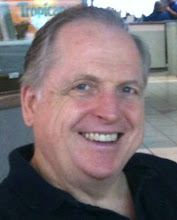In the continuous care retirement community (CCRC) where my 94-year-old mother lives, care givers associated with the nursing home and assisted living units have recently decided to go to 12-hour shifts. There are two teams--a white team and a blue team-- of care givers (nurses, certified nursing assistants, and resident staff assistants). The shifts are from 7:00AM to 7:00PM and from 7:00PM to 7:00AM. Each team has both a day sub-team and a night sub-team. The white team will be on for two days, and then has two days off while the blue team works. Each team works Saturday, Sunday, and Monday every other week.
In order to accommodate staff requests during this turn-over period (which began October 18th, 2009), some teams moved to different coverage areas. This CCRC has two assisted living units for people who have reached an age where they need more help than they get in their independent living apartments--help with medicine delivery, food preparation and delivery, and cleaning their apartments. Residents in these units live in one of 44 studio apartments with private bathrooms. One of these two assisted living units is for people with dementia--who have more problems with memory than the people on the other unit.
Care givers used to working with the dementia patients have developed routines in their service that they try to implement throughout the week. Because of their dementia, their patients are more docile and responsive to relatively aggressive leadership from their care givers. Some of these care givers have switched to be care givers in the other assisted living unit where the residents have more of their usual faculties for decision-making.
Some of these care givers, with the best of intentions, have tried to impose the structure of their dementia-unit routines on the residents of the other assisted living unit. The reaction of the residents of the non-dementia assisted living unit is strongly negative. These care givers, rather than making their own routines the important factor in their care, need to learn the needs and personalities of the residents of this unit and to adapt what they do to meet the needs of the residents rather than forcing the residents to conform to a routine that the care givers value.
What causes the biggest conflict is what is perceived by the residents as a lack of compassion and connection on the part of these care givers. This creates a big disconnect between the care givers and the residents they serve.
The 12-hour schedule with accompanying rotations are also contributing to the disconnect due to the stress on the body caused by disrupting normal rhythms of sleep for the night shift workers. (See the previous post on this issue.)
Wednesday, October 21, 2009
Subscribe to:
Post Comments (Atom)




No comments:
Post a Comment
Thanks for your comments. They will appear on the blog shortly.